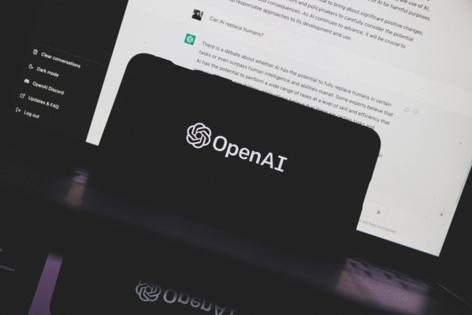ChatGPT maker touts how AI benefits Californians amid safety concerns
Published in Business News
OpenAI, the maker of popular chatbot ChatGPT, outlined how artificial intelligence is creating jobs and making Californians more productive as the tech company faced heightened safety concerns this week.
In a report released Wednesday, the San Francisco tech company said ChatGPT has 9 million weekly active users in California, more than in any other state. ChatGPT has a total of 700 million active weekly users.
The report highlighted the ways Californians use ChatGPT, a chatbot that can generate text, images and even code. It also pointed to the large number of AI job postings and AI companies in the state. It said AI has been used to forecast the spread of wildfires and assist doctors and farmers.
Using the chatbot for advice, learning new concepts, writing and coding are among the ways Californians use ChatGPT, OpenAI said. Roughly 24% of California users are between the ages of 18 and 24 years old and 34% are between the ages of 25 and 34 years old, OpenAI said.
The company's new report, which The Times viewed before it was published, comes on the same day that OpenAI's chief economist, Aaron "Ronnie" Chatterji, and Chris Lehane, who heads global policy at OpenAI, are scheduled to speak about AI's economic effect at an event in Sacramento.
OpenAI is under more scrutiny this week after the parents of a California teen who died by suicide sued the company, alleging that ChatGPT coached the 16-year-old on suicide methods.
On Monday, California Atty. Gen. Rob Bonta and 44 other attorneys general sent a letter to 12 companies, including OpenAI, stating that they would be held accountable if their AI products expose children to harmful content.
Lehane said what happened to the teen who died was a "human tragedy." OpenAI focuses on safety, and the "vast majority of people" are using ChatGPT in "positive and constructive ways," he said.
The Democratic political veteran, who has worked for Bill Clinton and Al Gore, didn't point to a specific bill that OpenAI is worried about, but he said a lot of California legislation heavily focuses on safety concerns and would limit people's access to AI technology.
Although the mood in Washington has moved away from regulating the powerful new technology with the arrival of President Trump, guardrails and regulations being considered in Sacramento could have a large effect on the industry, as so many of the leading AI companies are based in California.
"One of the potentially biggest challenges with this technology is the economic opportunity, making sure people can participate in it, making sure California continues to lead as this being the center of the AI economy," Lehane said.
Tech companies have been lobbying against regulations that could hinder their ability to compete in the AI race. They're also committing to spend hundreds of billions of dollars to build in the United States amid threats of tariffs. Trump in July unveiled an "AI action plan" that aims to cut "red tape" so tech companies could quickly develop and build AI technology.
"There should be a California version of how you think big, act big and build big that's consistent with the values of this state," Lehane said.
As the AI race continues to play a bigger role in California's economy, workers in various industries, including entertainment, modeling and tech, have expressed anxiety about AI's potential to take away jobs.
In July, a report by the Brookings Institution found that the regions around San Francisco, San Jose and Los Angeles were among the most prepared for AI. But the study also noted that potential job displacement is one downside for which cities have to watch out.
In its report, OpenAI pointed to the number of AI-related job postings in California and the AI companies based in the state, which have been helping fill up some of the vacant office space in cities including San Francisco.
Lehane, who signaled that OpenAI will release more data about this topic in September, said that history shows technology will create more jobs than it replaces, but acknowledged that some roles will sometimes vanish. For example, the use of electricity, he said, led to the displacement of lamplighters but created jobs for electricians.
"Obviously, time is going to tell on this," he said.
©2025 Los Angeles Times. Visit at latimes.com. Distributed by Tribune Content Agency, LLC.












Comments